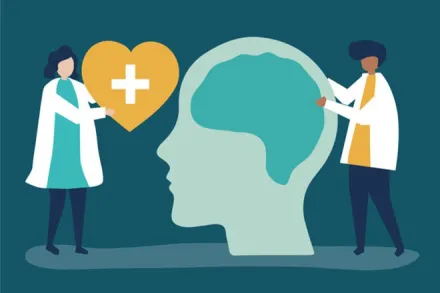
Understanding Mental Disorders: Types, Causes, Symptoms & Effective Treatments
Mental health is just as important as physical health, yet it’s often overlooked. In today’s fast-paced, high-stress world, mental disorders have become increasingly common, affecting millions globally. This comprehensive guide aims to provide clear, accurate, and SEO-optimized information about mental health disorders, their types, causes, symptoms, and available treatment options.
✅ What Are Mental Disorders?
Mental disorders, also known as psychiatric disorders or mental illnesses, are health conditions involving changes in emotion, thinking, behavior, or a combination of these. They are associated with distress and/or problems functioning in social, work, or family activities.
Mental health conditions are widespread — according to the World Health Organization (WHO), one in eight people worldwide live with a mental disorder.
Common Types of Mental Disorders
Understanding different types of mental illnesses is crucial for early diagnosis and effective management. Here are some of the most common mental health disorders:
1. Depression (Major Depressive Disorder)
A mood disorder that causes a persistent feeling of sadness, hopelessness, and lack of interest.
Keywords: Depression, symptoms of depression, treatment for depression
2. Anxiety Disorders
These include Generalized Anxiety Disorder (GAD), Panic Disorder, Social Anxiety, and Phobias. These conditions are characterized by excessive fear or worry.
Keywords: Anxiety symptoms, anxiety treatment, types of anxiety
3. Bipolar Disorder
A mental health condition that causes extreme mood swings, including emotional highs (mania or hypomania) and lows (depression).
Keywords: bipolar disorder symptoms, mood disorder
4. Schizophrenia
A severe mental disorder where people interpret reality abnormally. Symptoms include delusions, hallucinations, and disorganized thinking.
Keywords: schizophrenia symptoms, schizophrenia treatment
5. Obsessive-Compulsive Disorder (OCD)
OCD is marked by unwanted, intrusive thoughts (obsessions) and repetitive behaviors (compulsions).
Keywords: OCD symptoms, OCD treatment
6. Post-Traumatic Stress Disorder (PTSD)
Develops after experiencing or witnessing a traumatic event. Common in veterans, abuse survivors, or accident victims.
Keywords: PTSD causes, PTSD treatment, trauma recovery
7. Eating Disorders
Includes anorexia nervosa, bulimia nervosa, and binge-eating disorder. These are serious conditions related to persistent eating behaviors.
Keywords: eating disorders, anorexia symptoms, bulimia recovery
8. Attention-Deficit/Hyperactivity Disorder (ADHD)
A chronic condition that includes attention difficulty, hyperactivity, and impulsiveness.
Keywords: ADHD symptoms in adults, ADHD in children
9. Personality Disorders
Examples include borderline personality disorder, antisocial personality disorder, and narcissistic personality disorder. These disorders affect the way a person thinks, perceives, and relates to others.
Keywords: personality disorder signs, BPD symptoms
Causes of Mental Disorders
Mental health disorders often stem from a complex interplay of various factors:
🔹 Biological Factors
- Genetics or family history of mental illness
- Chemical imbalances in the brain
- Prenatal exposure to toxins or infections
🔹 Psychological Factors
- Severe emotional trauma during childhood
- History of abuse or neglect
- Cognitive dysfunctions
🔹 Environmental Factors
- Chronic stress at work or home
- Poverty and financial pressure
- Social isolation or discrimination
- Substance abuse or alcoholism
Keywords: causes of mental illness, risk factors for mental health disorders
Signs and Symptoms of Mental Illness
Early signs of mental illness can be subtle and easy to overlook. Recognizing the symptoms early can significantly improve outcomes.
Common Symptoms Include:
- Prolonged sadness or irritability
- Extreme mood swings
- Withdrawal from friends and activities
- Difficulty concentrating
- Feelings of guilt, worthlessness, or helplessness
- Changes in eating or sleeping patterns
- Delusions or hallucinations
- Suicidal thoughts or behaviors
Keywords: mental illness signs, early signs of mental disorder, when to see a psychiatrist
How Are Mental Disorders Diagnosed?
Diagnosis is typically done by a psychiatrist, clinical psychologist, or licensed mental health professional.
Diagnostic Methods Include:
- Clinical interviews
- Questionnaires and psychological tests
- Medical history review
- Brain imaging (for specific conditions)
- Observation of symptoms and behavior
Keywords: mental health diagnosis, how to diagnose mental disorder
Treatment Options for Mental Disorders
The good news is, mental health disorders are treatable. A combination of the following may be used based on the type and severity of the disorder.
🔸 1. Psychotherapy (Talk Therapy)
Includes Cognitive Behavioral Therapy (CBT), Dialectical Behavior Therapy (DBT), interpersonal therapy, and more. Therapy helps individuals recognize unhealthy patterns and develop coping strategies.
Keywords: therapy for depression, CBT for anxiety
🔸 2. Medication
Prescribed by psychiatrists to manage symptoms. Common medications include:
- Antidepressants
- Anti-anxiety drugs
- Mood stabilizers
- Antipsychotic medications
Keywords: best medication for anxiety, antidepressants, mental health drugs
🔸 3. Lifestyle and Behavioral Changes
- Regular exercise
- Balanced diet
- Sleep hygiene
- Meditation and mindfulness
- Reducing alcohol and drug use
Keywords: mental wellness tips, healthy habits for mental health
🔸 4. Support Groups & Peer Support
Group therapy or peer-led support networks help reduce isolation and offer real-world advice from people experiencing similar challenges.
🔸 5. Hospitalization or Residential Treatment
For severe mental illnesses where the patient is a danger to themselves or others.
Keywords: psychiatric hospitalization, mental health recovery center
Mental Disorders in India & Global Impact
- In India, mental health issues affect over 200 million people, yet 80% don’t receive treatment due to stigma, lack of awareness, or accessibility issues.
- Globally, depression is the leading cause of disability, and suicide is the fourth leading cause of death among 15-29-year-olds.
Keywords: mental health in India, mental disorder statistics, depression rates in India
Importance of Mental Health Awareness
The stigma surrounding mental illness continues to be a major barrier to treatment. Awareness and education play a critical role in:
- Reducing stigma
- Promoting early intervention
- Encouraging open conversations
- Advocating for better mental health policies
Keywords: mental health awareness, mental health education, breaking the stigma
When to Seek Help?
Seek professional help if you or someone you know:
- Feels overwhelmed by emotions
- Is unable to function at work or home
- Talks about self-harm or suicide
- Is unable to control substance use
There is no shame in seeking help. Like any other illness, mental disorders require treatment and care.
How to Find Mental Health Support?
You can consult:
- A licensed psychiatrist or psychologist
- Certified counselors
- Government and private mental health helplines
- Online mental health platforms
Final Thoughts: Healing Begins with Understanding
Mental disorders are not a sign of weakness or personal failure. They are medical conditions that require compassion, support, and the right treatment. With increased awareness, access to care, and supportive environments, recovery is possible — and so is a fulfilling life.
Let’s make mental health a priority, break the stigma, and extend empathy to those who need it most.



